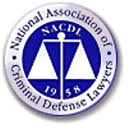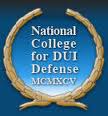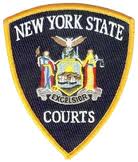NEW YORK CITY FELONY DWI DUI DEFENSE LAWYER
LAW OFFICES OF MICHAEL S. DISCIOARRO,LLC. CALL 917-519-8417
- Stages of a Felony DUI Case
- Felony DWI DUI Blog
- Get Your Car Back
- Felony DWI Prosecutions
- Leandra's Law
- Queens Felony DWI
- Brooklyn Felony DWI
- About
- Site Map
- Refusing a Breath Test
- Contact
- Find Your Case
- In The News
- Felony DWI DUI Resources
queenscriminaldefenselawyer.com
brooklyndrunkdrivinglawyer.com
manhattandrunkdrivinglawyer.com
domesticviolenceordersofprotection.com
brooklyncriminaldfenselawfirm.com
westchesterdomesticviolence.com
newyorkcitydrunkdrivinglawyers.com
newyorkcity-criminaldefense.com
WHAT IS A FELONY DWI IN NEW YORK?
Driving While Intoxicated and Driving with Greater than .08 Percent Blood Alcohol Content are unclassified misdemeanors unless:
1) The driver of the vehicle has been convicted of Driving While Intoxicated, or Driving with Greater than .08 Percent Blood Alcohol Content, or Driving While Ability Impaired by Drugs within ten (10) years of the driver's most recent arrest; --OR---
2) The driver has been previously convicted of Vehicular Assault in the First or Second Degree, or Vehicular Manslaughter in the First Degree or Second Degree within the last ten (10) years.
What if the driver has more than one prior Driving While Intoxicated conviction in the last ten (10) years?
If the driver has two (2) or more prior convictions for Driving While Intoxicated, Vehicular Assault in the First or Second Degree, or Vehicular Manslaughter in the First Degree or Second Degree, in the last ten (10) years and is arrested again for Driving While Intoxicated, the driver will be charged with a class D felony.
What are the criminal penalties for a conviction of an E Felony DWI?
Assumptions
Offense: driving while impaired or intoxicated (E felony), in violation of VTL 1192(2-4), a class E felony
Age category: adult
Felony offender category: first felony offender (Penal Law 70.00)
Answer
The following assumes that the defendant was operating an ordinary motor vehicle rather than a special or commercial vehicle.
The sentence must include either a fine, or imprisonment, or both a fine and imprisonment. VTL 1193(1).
The sentencing possibilities are:
An indeterminate sentence of imprisonment having a maximum term of not less than 3 years and not more than 4 years, and a minimum term of not less than 1 year and not more than one-third of the maximum term. Penal Law 70.00. Thus, the least such sentence is 1 to 3 years, and the greatest such sentence is 1 and one-third to 4 years.
A definite sentence of imprisonment of up to 1 year, if the court, having regard to the nature and circumstances of the crime and to the history and character of the defendant, is of the opinion that a sentence of imprisonment is necessary but that it would be unduly harsh to impose an indeterminate or determinate sentence. Penal Law 60.01(3)(a) and 70.00(4).
Intermittent imprisonment for any term that could be imposed as a definite sentence, if the court is not imposing any other sentence of imprisonment upon the defendant at the same time, and if the defendant is not under any other sentence of imprisonment having a term in excess of 15 days imposed by any other court. Penal Law 60.01(2)(a)(ii) and 85.00.
Probation for 5 years if (i) institutional confinement for the term authorized by law is or may not be necessary for the protection of the public, (ii) the defendant is in need of guidance, training or other assistance which, in his case, can be administered through probation supervision, and (iii) such disposition is not inconsistent with the ends of justice. Penal Law 60.01(2)(a)(i) and 65.00. If the conditions of probation include a condition that the defendant not operate a motor vehicle or apply for a license to operate a motor vehicle during the period of the condition, then the commissioner of motor vehicles may not restore the defendant's license until the period of the condition has expired. VTL 1193(2)(e)(5).
Conditional discharge for 3 years, if the Court having regard to the nature and circumstances of the offense and to the history, character and condition of the defendant, is of the opinion that neither the public interest nor the ends of justice would be served by a sentence of imprisonment and that probation supervision is not appropriate. Penal Law 60.01(2)(a)(i) and 65.05. Because the crime is a felony, the court must set forth in the record the reasons for imposing a conditional.





